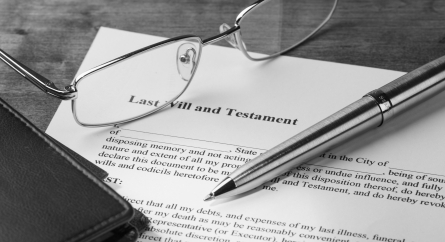Will Massachusetts Finally Overhaul the Estate Tax?
Estate taxes are generally thought of as a tax on the wealthy, but wealthy is a relative term. The Massachusetts Estate Tax applies to a surprisingly large portion of the middle class, not just the top 1%.
The estate tax is a transfer tax that is imposed on the value of the assets owned by a decedent at the time of death if the value of the estate exceeds the filing threshold. The filing threshold was set in 2006 at $1 million and has not been adjusted for inflation or been otherwise revised. Between inflation, a soaring housing market and a long-running, bull stock market, many Massachusetts decedents are reaching the Massachusetts filing threshold and are required to pay estate taxes to the Commonwealth.
Consider the following example of a single person dying with the following gross estate (having made no lifetime gifts):
| House: | $ 535,000 |
| Bank Accounts & CDs: | $ 200,000 |
| IRA: | $ 350,000 |
| Automobile: | $ 15,000 |
| Gross Estate: | $1,100,000 |
Further, assume $50,000 in deductions, resulting in a $1,050,000 taxable estate. The personal representative (formerly called an “executor”) of the estate will have to pay a tax attorney or accountant to prepare the Massachusetts Estate Tax Return and pay the Commonwealth $20,500 in Massachusetts Estate taxes before distributing any of the estate to the children or other heirs.
And it gets worse. What if the real estate in our example had been located near the ocean and was worth $1,000,000, so our decedent’s estate was worth $1,565,000 before deductions? In this case, the Massachusetts estate tax would be $65,360, which is one third of the available cash in the bank!
Part of the problem (in addition to the filling threshold not having been adjusted in 16 years) is that once the $1 million filing threshold is crossed, the estate tax applies to everything over $40,000, with tax rates ranging from 0.8% to 16%. In other words, the first $1 million is not exempt from tax.
Fortunately, help may be on the way. Two Massachusetts Democrats recently submitted legislation that would increase the Massachusetts estate tax filing threshold to $2 million to help mitigate what has become a crippling tax on the middle class and is resulting in retirees leaving the Commonwealth to live in one of the 33 states with no estate tax. Senator Julian Cyr introduced Bill S.1835 and State Representative Dylan A. Fernandes introduced Bill H. 2893.
In late August of 2021, The Boston Globe Editorial board called for an overhaul of the Massachusetts Estate Tax. Stay tuned for further updates!
Categorized: Estates
Tagged In: estate planning, estate tax planning












